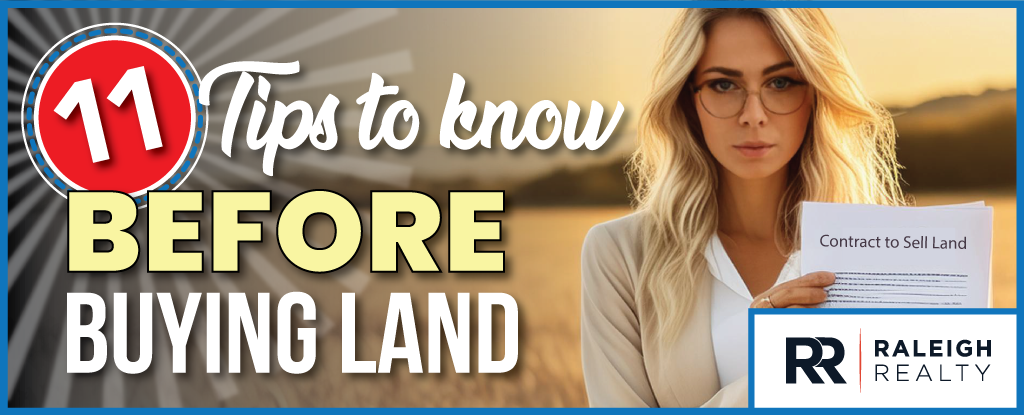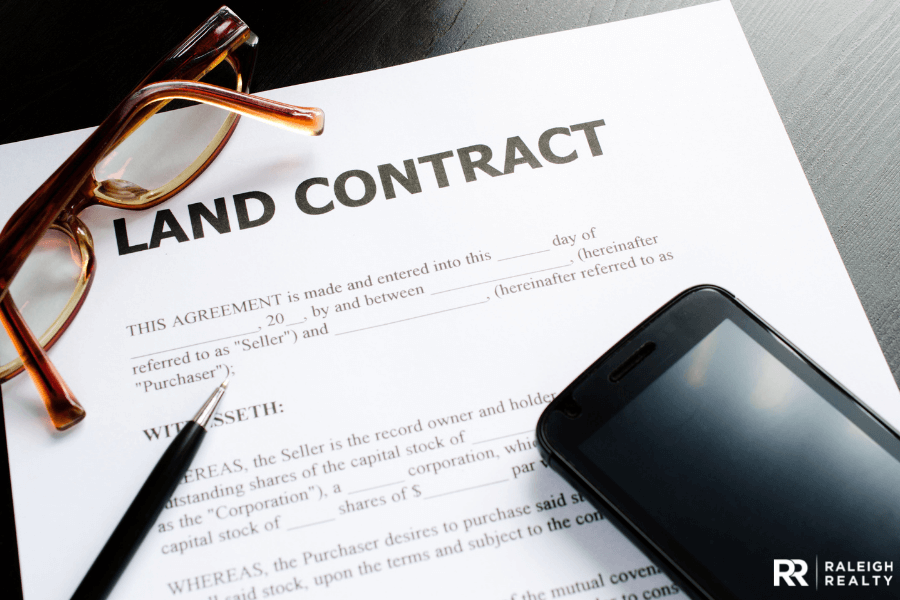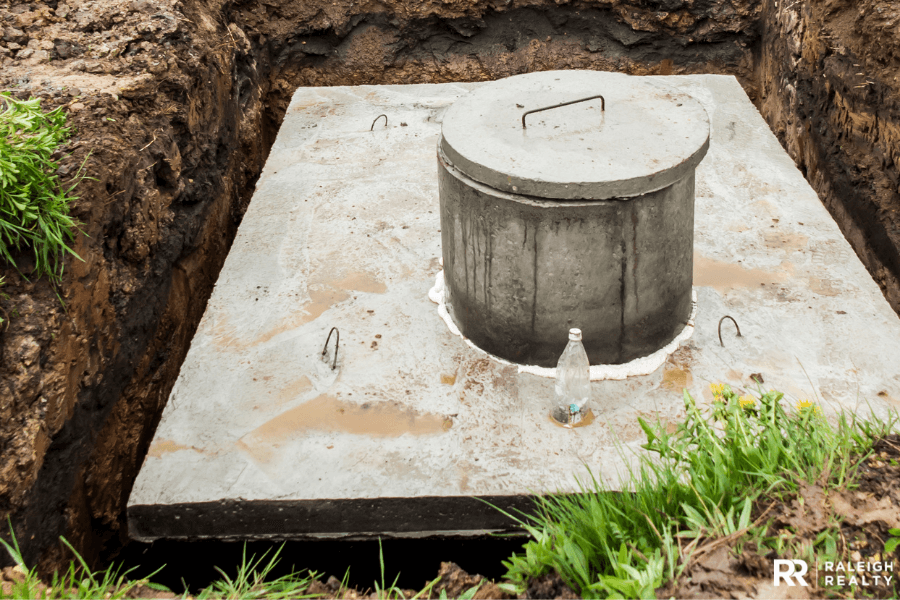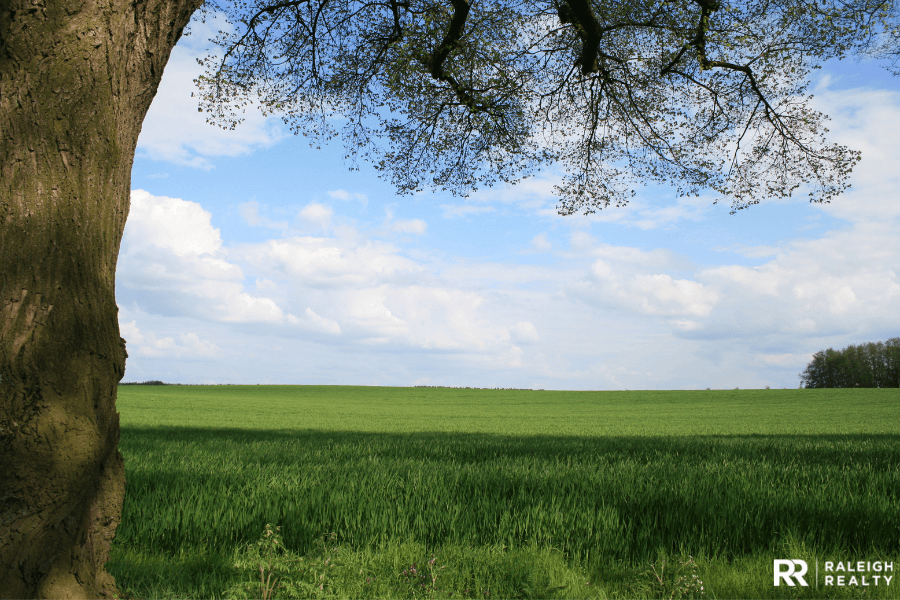11 Land Buying Tips: How to Buy Land

How to Buy Land
Everything you need to know about buying land and building on it!
As millennials enter the prime of adulthood, more and more are buying homes. However, for many, the true American dream is purchasing their plot of land. Those without experience may wonder, 'Is buying land easy?' while those with more experience are likely thinking, 'Why is it so hard to buy land?.'
The truth is that buying land is not a simple process, and at times, it can feel more complex than buying a new home. But whether you want to know how to buy land and build a house or just how to buy land cheaply, this guide will help clarify the process.
How to Buy Land: 11 Things You Need to Know
Chapters
What should you do before buying land?
There are several steps to the process that you'll want to initiate before beginning to buy land. The first is determining your funds. Are you planning to pay cash for the land you purchase, or are you wondering how to buy land without money?
Numerous generous loan options are available for specific groups. If you plan on financing your purchase with a loan, you'll want to be pre-approved. If you are buying with cash, you'll want proof of income to show the seller's agent.
Once you've determined your financing, you can calculate your budget.
How much money do you need down to buy land?
Getting a loan to buy land or a land loan, is not as simple as getting a mortgage for a house. Very often, you'll need more money down than when buying a home, anywhere from 10-20% down. But with certain types of land that can be lowered, like with a lot prepared to be built on. In general, there are three kinds of land you can purchase, and this determines how much down is required, as each requires its kind of loan:
- Raw Land Loan: Raw land is when there is no development: no sewers, electricity, or roads. This loan poses the most significant risk for banks, requiring the largest down payment and good credit. The loan will often be considered commercial with stricter rules and comes due in 10 years, not 30. It is also essential to show the banks a robust development plan so that they feel like they are minimizing risk. While raw land is often much cheaper than more developed options, the loan options do not always make this the best choice.
- Unimproved Land Loan: This is land with some development but not everything you need to support a home, like an electric or gas meter. A loan for unimproved land is not as risky for banks as for raw land, but the down payment and credit score requirements are still high.
- Improved Land Loan: With land with full access to roads, electricity, and water, banks take on less risk and can offer significantly lower down payments, like 10-20%.
Once you've determined your budget, it's time to find your plot of land.

Finding the Right Piece of Land
A real estate agent can be an excellent resource for where to look. If you find the right one, they'll help you throughout the process and protect your interests.
If you decide to go it alone or just want to get started, a good resource is Landwatch, which showcases land from all over the country and allows you to set various filters to narrow down your search.

Do Your Due Diligence
Due diligence is when you fully investigate all aspects of your future property to ensure you know what it is you are getting. While you'll do some of this process after you've made an offer, a great deal of it should be done before you seriously consider making an offer. Some things that are most important to consider in evaluating your land in the beginning stages include:
- Local zoning laws can affect the size and height of the buildings you are allowed to build or even if you're allowed to build at all.
- Sewer Capacity: Will the land's current sewer system be able to support your needs
- Utilities: From the water hook-up to access to the electric grid, you'll need permits.
- Road Access: If there isn't existing road access many factors will affect what is possible, both local rules and the expense of paving a road.
It is important to consider the state of land from a development standpoint, not just from a bank's perspective. Raw land can be very expensive to develop. For instance, if the land is covered with trees, a single can tree can cost $700 to fell. In doing your due diligence you will determine based on local laws and regulations as well as the condition of the land whether the plot meets your development needs. The location of your land is just as important as the land itself!
Make Your Offer in Writing
Once you have completed your due diligence, and feel confident you've found the right piece of land, it's time to make your offer. But this isn't as simple as agreeing to a set price. Rather your offer must protect your best interests and come with a set of contingencies.
These contingencies give you an opportunity to investigate the most detailed aspects of the land so you can make an entirely informed decision. This involves investing money in hiring experts to tell you what you need to know, and before you spend that money it's important to know you have an accepted offer. Contingencies that are most common include the ability to pass environmental tests can get sewer permits, and that there is a current survey with boundaries that meet the buyer's needs.
When you make your offer, you'll pay a deposit. This earnest money goes into an escrow account to show you are a serious buyer. You'll also need to show your ability to pay for the land, either with proof of cash or loan documents. In states like North Carolina, a Real Estate Attorney can go a long way in helping you with your land purchase.
Generally, the offer in writing is made with the Bid offer form. If you are working with a real estate agent, they can provide this, but it's important that you have someone looking after your best interests as you set the contingencies. You may want to hire a real estate lawyer if you are not working with a real estate agent. After the offer is accepted, a Sales Purchase Offer is generally signed.
Conduct Environmental Tests
You should view the environmental tests of your future land as important as an inspection of a future home. It can tell you about everything from soil contaminants to the likelihood of a sinkhole. Information about the moisture of the soil can be invaluable for determining suitability for building and installing things like a septic tank - which can be expensive in and of themselves.

Conduct a Survey
Hiring a professional to conduct a survey is the only way to be sure that the boundaries of the land are as stated. If parts of the land are unusable due to public access or roadways, a survey will find this out. Finding the property lines is essential when buying land to know precisely what you are purchasing.
Conduct a Title Search
A title search will help you learn if there are any liens on the property. It will help you learn if there are any easements or restrictions on the land that you need to know about.
Always Have a Thorough In-Person Visit
There is no better way to get to know what you are buying than walking through the physical property. This is an important step, and you'd be surprised how often it is left out! You'll want to do this walk-through after the title check and the survey so you can personally investigate any findings. This will also give you a great idea of the location of your land and what is around it.
When It Comes Time to Pay
Payment occurs at the closing. It will be negotiated in the contract who pays for what in terms of the closing costs, and a skilled real estate agent will help you navigate this. You must pay with a cashier's or bank check if you purchase the land with cash. A personal check is not accepted for such large sums of money. If you are purchasing the land with a loan, this will increase the closing fees. A representative of the lending institution may be present to pay the seller.
Steps to Take to Buy Land Cheaply
A great way to find cheap deals on land is to look beyond the internet and search closer to home. There are bound to be local deals that are not advertised online and would go missing if you didn't take a closer look. Check out local newspapers and keep your eyes peeled for signs of land for sale by the owner. The terms OMC and OWC mean the owner may carry or owner will carry and signify that the owner is willing to finance the property. This can often be the key to how to buy land with no money.
Another great way to save money is to search out properties that have been on the market for a long time. In these instances, owners tend to be much more open to negotiating a favorable deal. Another tactic to save money is to ask for a delayed closing, allowing you to save more money prior to closing.

Now that You Have Land, How Will You Build a House?
Once you've purchased your land, you have to build your home; for many, the question becomes how to finance it. Fortunately, a couple of loans have been created for this situation. The first, a construction loan, offers a one-year loan that helps get your project off the ground and into being. The loan requires that you provide the lender with a story. This is a detailed construction plan for your building. Second, a construction-to-permanent loan converts your loan to a mortgage after construction. While this is, in effect, two separate loans, you get to save on fees as there is only one signing. Here's how much it costs to build a house.
Buying land has more complex aspects than purchasing a home that is already built. But in addition to allowing you the opportunity to build the true house of your dreams, purchasing land for development also offers endless investment opportunities. While it can seem daunting at first, by practicing due diligence, doing all your research, and hiring the right experts, you can be confident that your purchase is in your best interests and meets your specifications. There are many options for buying land with no or little money, giving millions this exciting opportunity. Even if you've just started saving, your dream of owning land could be closer than you think. Some folks will opt to buy new construction homes that are already built, though this may limit you to less land or a smaller lot than you hoped for.

Ryan Fitzgerald
Hi there! Nice to 'meet' you and thanks for visiting our Raleigh Real Estate Blog! My name is Ryan Fitzgerald, and I'm a REALTOR® in Raleigh-Durham, NC, the owner of Raleigh Realty. I work alongside some of the best Realtors in Raleigh. You can find more of my real estate content on Forbes, Wall Street Journal, U.S. News and more. Realtor Magazine named me a top 30 under 30 Realtor in the country (it was a long time ago haha). Any way, that's enough about me. I'd love to learn more about you if you'd like to connect with me on Facebook and Instagram or connect with our team at Raleigh Realty. Looking forward to connecting!

